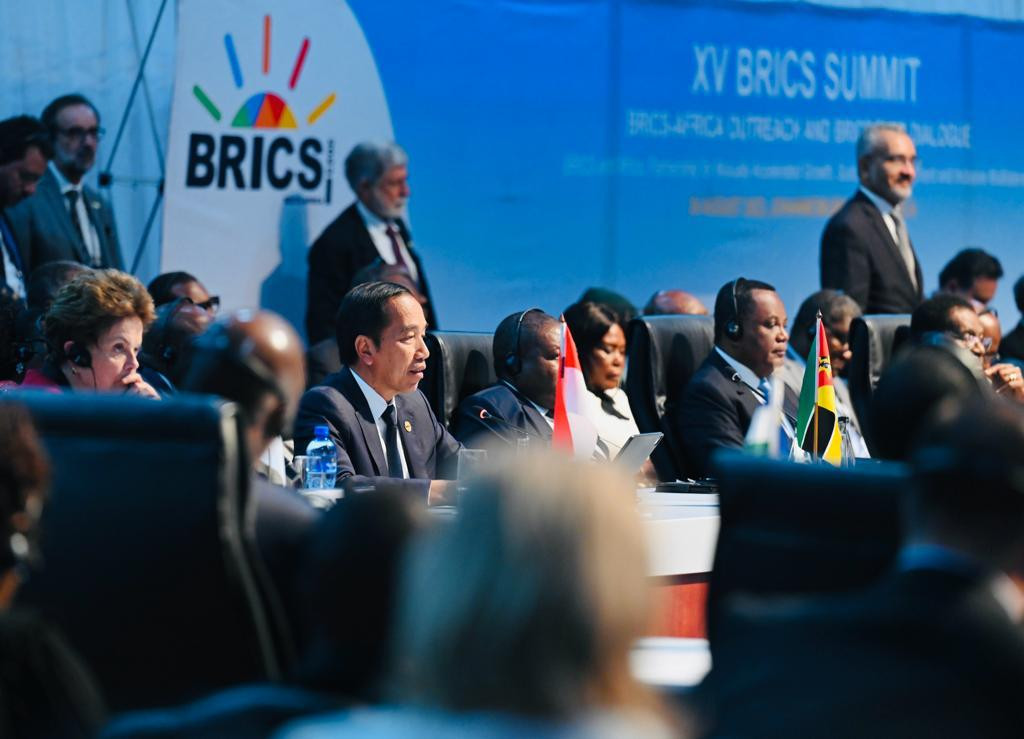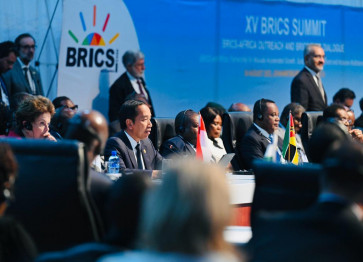Popular Reads
Top Results
Can't find what you're looking for?
View all search resultsPopular Reads
Top Results
Can't find what you're looking for?
View all search resultsThe wisdom and folly of joining BRICS Plus
While BRICS has expanded from its original concept, the bloc has imported all ongoing disputes among the emerging economies that comprise its membership, and until it gets its house in order, unseating the dollar and euro as the currencies of international trade may take a long while yet.
Change text size
Gift Premium Articles
to Anyone
“BRICS” was first coined by Jim O’Neill of Goldman Sachs back in 2001, when China was on the verge of joining the World Trade Organization (WTO) the following year; a decision agreed by the United States, the United Kingdom, Russia and France.
Although O’Neill disowned in 2023 the strategic power and depth of BRICS, as it was an acronym that came from an American Pakistani intern at Goldman Sachs, it is not without a whiff of irony that the power of BRICS was highlighted by then-White House economist Joe Neil later that same year.
According to O’Neill, BRICS in its current form is merely a "political club", wildly different from how it was first conceptualized in 2001 as an emerging economic bloc comprising Brazil, Russia, India, China and South Africa.
To former White House economist Tom Sullivan, the horizontal expansion of BRICS membership to include the likes of Saudi Arabia, Egypt and Ethiopia is enough to incentivize the new BRICS to be an "economic wreaking ball" of the international trading order based on the US dollar. These countries control the Suez Canal, where up to 12 percent of maritime trade passes through, and choking up trade in the Red Sea is precisely what the Houthis have done.
The new BRICS, in Sullivan’s view, can ideally trade in their own national currencies too.
In fact, prior to World War II, almost all international trade was done in local currencies. There was a robust business in currency exchange prior to WWII. Invariably, the aftermath of WWII saw the US dollar being used everywhere the US armed forces were deployed.
A return to the pre-WWII system is not the end of the US currency, but perhaps it may diminish the influence of the Federal Reserve on other governments.



















